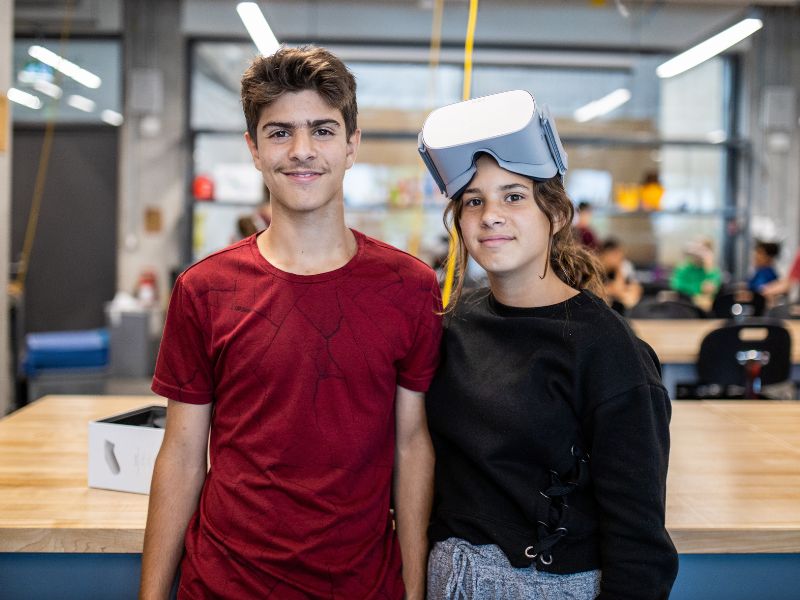uOttawa Maker Mobile Workshops
Workshops tailored to your needs
Our STEM workshops for kids and teens complement the school curriculum. We offer workshops to elementary school, high school, and specialist high skills majors (SHSM). We also do birthday parties and community events. Our goal is to encourage creativity, problem-solving skills, and interest in technology among youth.


Discover our workshops
Choose workshops based on the participants’ interests and curriculum.
Elementary school
Details
Cost
Starting at $110 for online workshops.
Duration
From one to two hours, depending on the selected workshop.
Group size
The maximum group size is 30 students.
Register for a workshop
View the full list of Maker Mobile workshops for elementary schools.

High School and Specialist High Skills Majors (SHSM)
Details
Cost
Starting at $130 for online workshops.
Duration
From one to two hours, depending on the selected workshop.
Group size
The maximum group size is 30 students.
Register for a workshop
View the full list of Maker Mobile workshops for high schools and SHSM.

Birthday parties
Choose a workshop from the list according to your participants’ school grade.
Details
Cost
At your house: $250
Duration
The activity will last about 60 to 75 minutes.
Group Size
Maximum of 10 participants.
A parent needs to be present to supervise the participants at all times.
Register for a workshop
To book the Maker Mobile for a birthday party, please send us an email at [email protected] to enquire about availability. We recommended that you submit your request at least three weeks before the desired date.

Community event kiosk
Invite the uOttawa Maker Mobile to your community event. The activities can be held either inside or outdoors. Many options are available: 3D printing demonstration, robotic activities with Ozobots, Bee-Bots, etc.
We’ll work with you to determine what works best for your event.
Details
Cost
From $400 for a half-day or $700 for the full day, for up to two instructors present at the kiosk
Duration
Half-day : up to 3 hours, full day: from 4 to 6 hours
Group size
We can accommodate various group sizes, up to 250 people. If your group size exceeds 250 people, please send an email to [email protected].
Register for a workshop
Contact [email protected] for further details.

